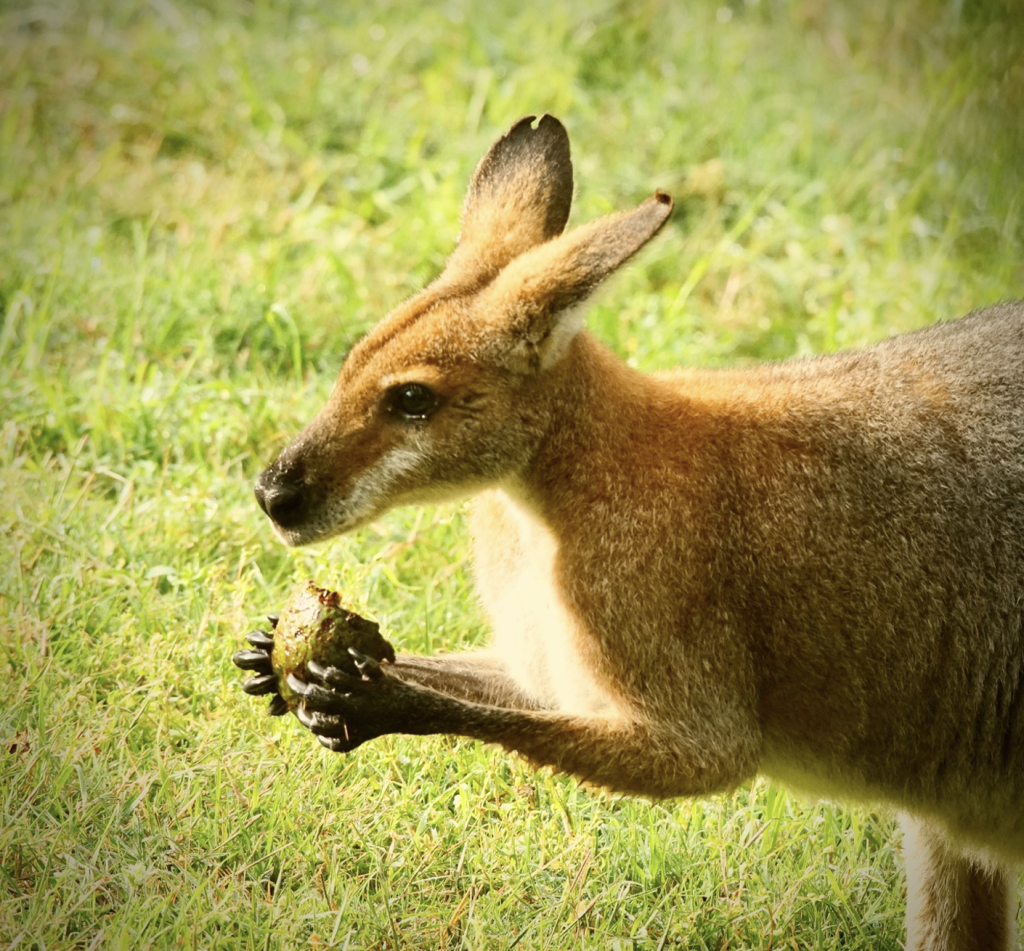We have about 10 Red-necked Wallabies living on our property in Brookfield and see many of them every day at dusk and dawn.
They generally are eating the lush grass around the many small dams on our property.
As well as the grass they eat several weeds including the tough Sida retusa, which is almost impossible to pull out by hand.
This year our huge Avocado tree has had over 200 fruit, many which are too high for us to pick even with an extension picking stick. They eventually fall off and the Red-necked Wallabies have been feasting on the windfalls. They don’t wait for them to ripen. They eat the hard flesh and skin and only leave the seed.
 Male Red-necked Wallaby eating unripe Avocado
Male Red-necked Wallaby eating unripe Avocado
Most of the Wallabies on the property are females with joeys. Until recently we have had a large male we could identify because of his floppy ear which looked like it had been half chewed off in a fight. Now he seems to have been replaced by the male in the photograph chewing on an unripe Avocado.
We have known these Wallabies since the early 1970’s and we are pretty sure they are all related. They are fairly confident around us, but they don’t allow us to come too close. When we first came to the property we used to feed them bread at the back door, but we found that after a neighbour’s dog came onto the property the wallabies disappeared for several days. This made us realise that we shouldn’t make them vulnerable to attack if they became too tame so we stopped feeding them. Dog attacks and road kills are their main danger so please watch out for our wallabies when you are on the road at dusk and dawn.
Words and photo: Ed Frazer

